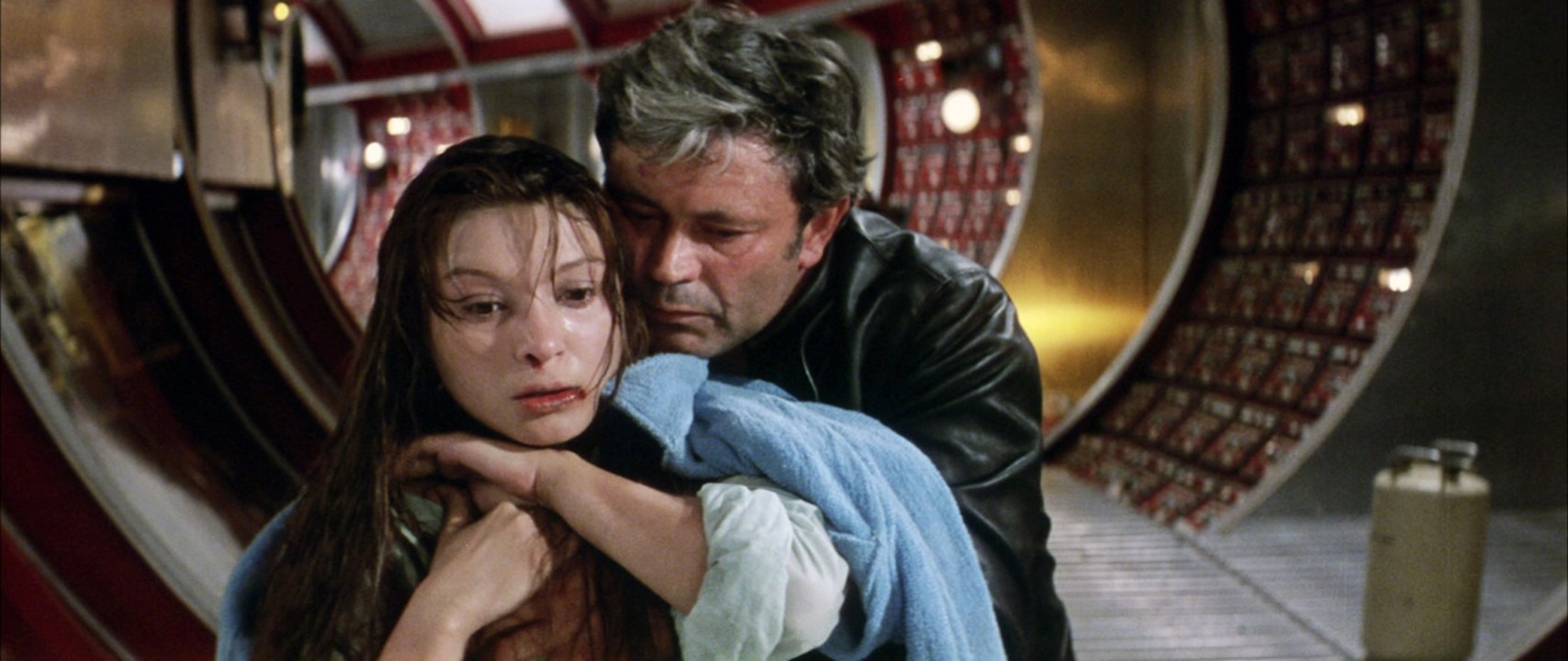Solaris (1972)

Andrei Tarkovsky’s “Solaris” (1972) stands as a masterpiece of Soviet cinema, a haunting and introspective exploration of humanity’s search for meaning and connection in the vastness of space. Adapted from Stanisław Lem’s novel of the same name, the film transcends the science fiction genre to delve into themes of memory, love, and the enigmatic nature of consciousness.
Set in a future where humanity has established a space station orbiting the mysterious planet Solaris, the narrative unfolds with deliberate pacing, immersing viewers in the psychological turmoil of the protagonist, Kris Kelvin, portrayed with understated brilliance by Donatas Banionis. Kelvin is a psychologist sent to investigate strange occurrences aboard the station, where the crew members have been affected by inexplicable phenomena linked to Solaris.

Tarkovsky’s direction imbues “Solaris” with a sense of metaphysical unease and existential contemplation. The cinematography captures the sterile interiors of the space station juxtaposed with the awe-inspiring vistas of Solaris itself, a planet covered in a vast and sentient ocean that seems to probe the depths of the human mind. The film’s deliberate pace and long takes invite viewers to ponder the mysteries of existence alongside Kelvin, as he grapples with his own memories and the specters of guilt and loss that haunt him.
Central to the film’s narrative is Kelvin’s encounter with his deceased wife, Hari, portrayed with ethereal grace by Natalya Bondarchuk. Hari appears mysteriously aboard the station, a manifestation created by Solaris from Kelvin’s memories. Their reunion unfolds with poignant tenderness and emotional complexity, as Kelvin wrestles with the implications of her presence and the unresolved emotions that bind them together.

Thematically, “Solaris” explores the nature of reality and the limitations of human understanding. Tarkovsky’s screenplay delves into the philosophical underpinnings of consciousness, identity, and the ways in which memory shapes our perception of the world. The interactions between Kelvin and Hari serve as a microcosm of broader existential questions, inviting viewers to contemplate the nature of love, grief, and the haunting specters of the past.
The film’s atmospheric score, composed by Eduard Artemyev, enhances the haunting beauty of “Solaris,” with its minimalist melodies and ambient soundscape that evoke a sense of melancholy and introspection. Each element of the film, from the haunting visuals to the evocative soundtrack, contributes to the overarching sense of existential dread and profound longing that permeates Tarkovsky’s vision.

In conclusion, “Solaris” (1972) transcends its genre trappings to emerge as a timeless meditation on the human condition. Through Andrei Tarkovsky’s visionary direction, Donatas Banionis’s nuanced performance, and a narrative steeped in philosophical depth, the film invites viewers on a journey into the recesses of the human psyche and the ineffable mysteries of the universe. “Solaris” remains a cinematic achievement that continues to provoke thought and inspire contemplation decades after its initial release.











